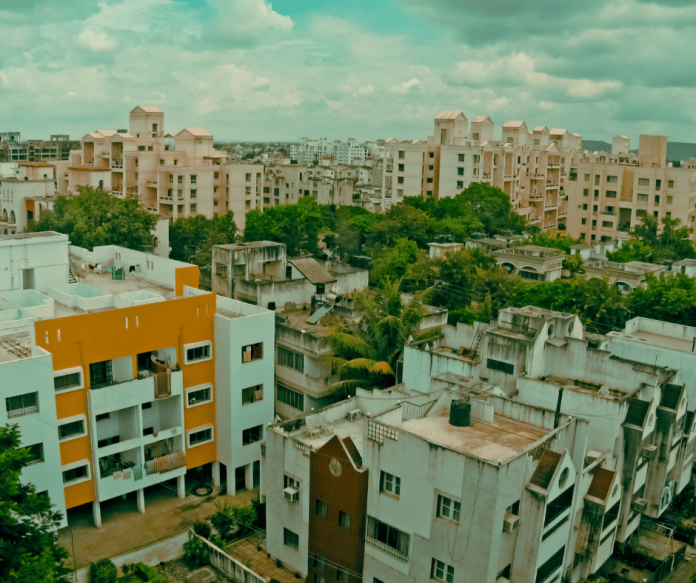Is Pune more Expensive for Students than Bangalore?
A crucial decision that greatly impacts a student’s academic career and overall experience is selecting the best city for them to pursue higher education. The cost of living in a place is just as important as academic offerings, university standing, and employment opportunities. One city to another can have significantly different living costs for housing, food, travel, and other incidents.
Students are increasingly making extensive comparisons of the cost of various cities before making a final decision. Not only is it necessary to make wise financial decisions while creating a budget, but it also makes being a student easier and more pleasurable. Here, we contrast Bangalore and Pune, two well-known Indian cities, to determine which offers more affordable living options for students.
By examining several factors such as accommodation, food, transportation, and educational costs, we want to provide useful information to prospective students struggling to determine which reasonably priced and student-friendly area is most suitable for their academic endeavors.
Also read: Cost of living between pune and bangalore
Cost of Living in Pune
Rental Prices for Student Accommodation
Pune offers a variety of student accommodations, from hostels to shared apartments and single rooms. On average, monthly rent for a shared apartment in popular areas ranges from INR 8,000 to INR 15,000, while single rooms may cost between INR 5,000 to INR 10,000. The costs can vary based on proximity to educational institutions and facilities.
Additionally, students may encounter deposits or extra fees, so it’s crucial to factor these into their budgeting.
Food
Average Cost of Groceries
Grocery expenses in Pune depend on individual dietary habits. Students can expect to spend around INR 2,000 to INR 3,000 per month on essentials such as rice, lentils, fruits, and vegetables. Local markets often provide more affordable options than supermarkets, allowing students to stretch their food budget further.
Dining Out Expenses
Pune offers a diverse range of affordable restaurants and cafes for those who enjoy occasional dining out. A meal at a mid-range restaurant may cost around INR 300 to INR 500. Exploring local eateries can be budget-friendly, providing a mix of delicious cuisine without breaking the bank.
Also read: Top cafes in pune to visit with your friends
Transportation
- Public Transport Costs
Pune’s public transportation system includes buses and local trains. Monthly bus passes range from INR 600 to INR 1,200, depending on the distance covered. Local train services are also reasonably priced, making them a cost-effective choice for students.
- Commuting Expenses
For students commuting from farther locations, additional expenses might be incurred. Alternative transportation modes, such as cycling or walking for shorter distances, can contribute to cost savings.
Miscellaneous Expenses
- Utilities
Utility costs, including electricity, water, and gas, typically total around INR 1,500 to INR 2,500 per month. Students should know that utility costs vary based on the accommodation type and usage.
- Internet Expenses
Internet services are essential for students. Budget-friendly plans start at around INR 500 to INR 800 per month, providing adequate academic and recreational use speed.
- Personal Items
Budgeting for personal items, including toiletries and laundry, is essential. Students may spend around INR 1,000 to INR 1,500 monthly on these necessities.
For those seeking convenient and affordable student accommodations, consider exploring options on the Colive app. With its user-friendly interface and wide range of housing choices tailored to students’ needs, Colive ensures a hassle-free living experience. Download the Colive app now and embark on your journey to comfortable student living.
Cost of Living in Bangalore
-
Housing
Rental Prices for Student Accommodation
Bangalore, being a bustling metropolis, offers a variety of student accommodations. On average, monthly rent for a shared apartment in popular areas ranges from INR 10,000 to INR 18,000. Single rooms may cost between INR 7,000 to INR 12,000.
Compared to Pune, housing costs in Bangalore tend to be slightly higher. Students should also be mindful of any additional deposits or fees associated with their chosen accommodations.
-
Food
Average Cost of Groceries
Grocery expenses in Bangalore are comparable to other major cities. Students can expect to spend around INR 2,500 to INR 4,000 per month on essential items like rice, lentils, fruits, and vegetables. Exploring local markets and choosing budget-friendly options can help students manage their food budget effectively.
Dining Out Expenses
Bangalore’s vibrant food scene offers affordable and upscale dining options. A meal at a mid-range restaurant may cost around INR 400 to INR 700. Like Pune, exploring local eateries and street food can be a cost-effective way for students to enjoy varied cuisines.
-
Transportation
Public Transport Costs
Bangalore’s public transportation includes buses and the Namma Metro. Monthly bus passes range from INR 800 to INR 1,500, while the metro provides a convenient and affordable alternative. The overall transportation costs in Bangalore are comparable to those in Pune, offering students various options based on their preferences and locations.
Commuting Expenses
For students commuting longer distances, additional expenses might be incurred. Exploring cost-effective commuting options like shared cabs or pooling can contribute to budget savings.
-
Miscellaneous Expenses
Utilities
Utility costs in Bangalore, including electricity, water, and gas, typically total around INR 1,800 to INR 2,800 per month. As with any city, costs vary based on the accommodation type and individual usage patterns.
Internet Expenses
Internet services are essential for students. Budget-friendly plans in Bangalore start at around INR 600 to INR 1,000 per month, offering reasonable speeds for academic and personal use.
Personal Items
Like Pune, budgeting for personal items such as toiletries and laundry is essential. Students may spend around INR 1,200 to INR 1,800 monthly on these necessities.
| Expense Category | Subcategory | Pune Average Monthly Cost (INR) | Bangalore Average Monthly Cost (INR) |
| 1. Housing | Shared Apartment | 8,000 – 15,000 | 10,000 – 18,000 |
| Single Room | 5,000 – 10,000 | 7,000 – 12,000 | |
| 2. Food | Groceries | 2,000 – 3,000 | 2,500 – 4,000 |
| Dining Out | 300 – 500 | 400 – 700 | |
| 3. Transportation | Public Transport | 600 – 1,200 (Bus Pass) | 800 – 1,500 (Bus Pass) |
| Affordable (Local Trains) | Affordable (Namma Metro) | ||
| Commuting | Minimal (Cycling or Walking) | Additional expenses may vary based on distances. | |
| 4. Miscellaneous Expenses | Utilities | 1,500 – 2,500 (Electricity, Water, Gas) | 1,800 – 2,800 (Electricity, Water, Gas) |
| Internet | 500 – 800 | 600 – 1,000 | |
| Personal Items | 1,000 – 1,500 | 1,200 – 1,800 | |
| Total Monthly Living Cost | 21,900 – 36,700 | 24,500 – 41,000 |
Quality of Life in Pune for Students
Pune boasts a rich cultural heritage with numerous cultural events, music festivals, and art exhibitions. The city has historical landmarks, museums, and theatres, providing students with diverse cultural experiences.
Pune offers a range of recreational activities, including trekking in the nearby Western Ghats, parks, and nature reserves. Vibrant nightlife with cafes, pubs, and live music venues adds to the recreational options for students.
Quality of Life in Bangalore for Students
Bangalore, a melting pot of cultures, offers a dynamic arts scene, including theatres, art galleries, and cultural festivals. The city’s diverse population contributes to a vibrant cultural atmosphere, exposing students to different traditions.
Beautiful landscapes and parks surround Bangalore, offering students opportunities for outdoor activities and weekend getaways. The city’s pubs, cafes, and live music scene contribute to a lively recreational environment.
Conclusion
Making an informed location decision is crucial for students to lead successful and financially stable lives after completing their higher education. It goes beyond the cost of housing and tuition. The overall quality of life is significantly improved when factors like cultural variety, recreational activities, and community involvement are considered when earning an academic degree.
Students should carefully assess their interests, financial situation, and career ambitions before deciding. Making an informed choice influences the academic route positively and paves the way for a successful and satisfying student life.







